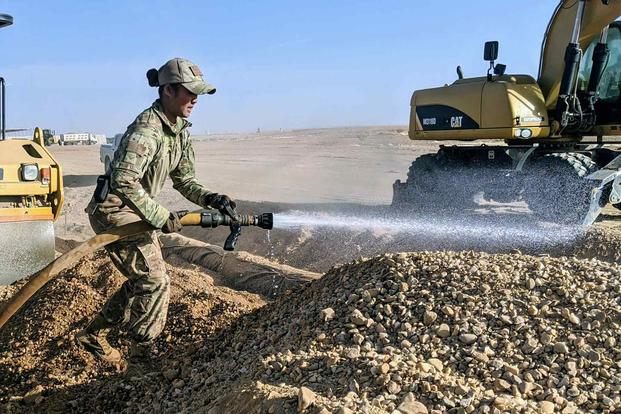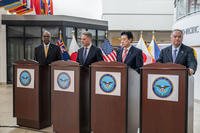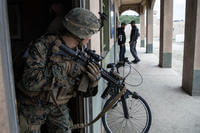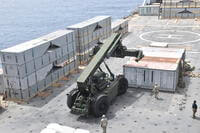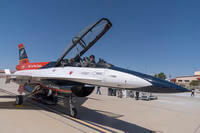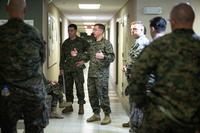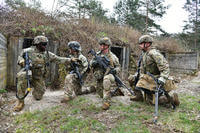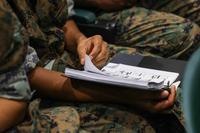The Pentagon said Monday that it is not abandoning the counterterrorism mission in West Africa even as it begins negotiations to withdraw the U.S. military presence in Niger and questions are arising over military operations in neighboring Chad.
The potential military withdrawal from Niger comes more than a month after the military junta ruling the country made the demand, after it came to power in July through a coup. A U.S. official told The Associated Press on Saturday that there is no timeline for the withdrawal from Niger, which hosts American bases and has played a key role in the U.S. effort to combat a proliferation of terrorist groups in Africa.
"There is a significant counterterrorism consideration here throughout Western Africa and something that we continue to work very hard on," Pentagon spokesman Maj. Gen. Pat Ryder told reporters Monday. "We'll also continue to explore options and how we can ensure that we're able to continue to address potential terrorist threats."
Discussions have begun between an American delegation and Niger about an "orderly withdrawal of U.S. forces from the country," according to Ryder.
The U.S. military has two bases in the country that have been used in counterterrorism operations against organizations such as the Islamic extremist group Boko Haram, the Islamic State in the Greater Sahara, and al-Qaida affiliate Jama'at Nusrat al-Islam wal-Muslimin, or JNIM.
Between January and June 2023, the region experienced more than 1,800 terrorist attacks that killed more than 4,500 people, according to a press release from the United Nations.
In 2017, 12 U.S. Army Special Forces soldiers were accompanying 30 Nigerien troops on a mission to capture or kill a high-level Islamic State group leader when they were ambushed by more than 100 extremists just outside the village of Tongo Tongo, leaving four American soldiers dead and two more wounded.
In July 2023, a military junta in Niger ousted democratically elected President Mohamed Bazoum from power. Since then, the Pentagon has evacuated some personnel from the country and consolidated the majority of its military footprint at one of its two bases.
At the moment, there are around 1,100 U.S. personnel in the country.
Ryder would not say what would happen to the two bases should U.S. forces withdraw completely.
After the coup, international news outlets have reported that Niger's rulers have begun to pursue closer ties with Russia. Nearby Mali and Burkina Faso -- countries also run by military juntas -- already have Russian troops in place.
The news of the withdrawal negotiations comes just days after outlets such as Reuters reported that at least one military official in neighboring Chad has also issued a demand that the U.S. military halt its activities in the country.
Ryder stressed Monday that "to my knowledge, U.S. forces have not been asked to leave Chad" but noted that there have been discussions with the country about the legal agreement that governs the U.S. presence there.
However, unlike Niger, where the American military maintained a significant presence that included airfields from which drone missions were launched, a defense official told Military.com that there are only around 100 U.S. troops -- mostly officers who manage military coordination efforts, not operations -- in Chad, and that total also includes embassy staff.
"We're going to continue to take ... the terrorist threat seriously and we're going to continue to work with partners throughout Africa on that front," Ryder said. The Pentagon wants "to work with reliable partners to address the threat that affects countries and citizens all throughout the region."
Related: Niger's Junta Rulers Ask for Help from Russian Group Wagner as it Faces Military Intervention Threat
